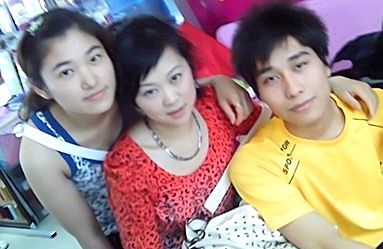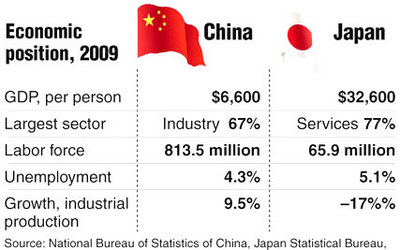
HUNAN NATIVE Ms. Nana Zhang has been in Shenzhen for three years now, first plying her skills in the garment trade before switching over to Information Technology, where she says everyone knows “the real money is” here.
But like most southern Chinese, she hopes to one day be her own boss again after an unsuccessful attempt to open a retail clothing shop. So what makes this 20-something entrepreneur and millions like her in China click?
Every fortnight, NextInsight offers you a glimpse into the working lives of young, upwardly mobile and ambitious people here in Shenzhen.
Sometimes the voices are from disparate parts of the world that have adopted this southern boomtown as their new place of work.
Others are native mainlanders who have been drawn to Shenzhen’s siren song of surefire success, social climbing scenarios and safe havens for hard-earned investment capital.

What unites all the interviewees in this ongoing series is two-fold: all are drawn to the economic vitality of Shenzhen for essentially the same reasons, and none of those featured have actually been born here.
Shenzhen is a mystery wrapped in an enigma. What other city produces the following jaw-dropping response from locals when asked about the actual surface population of Shenzhen:
“Somewhere between 10 and 20 million,” the casual enquirer will be told by most passersby.
Whether this broad estimate errs on the high side or the low, one thing is for certain: Shenzhen is China’s most crowded major city, and its healthy mix of high-tech chip fabs and hybrid car plants merrily coexisting alongside traditional labor-intensive toy and textile mills will continue to be a migrant magnet for years to come.
NextInsight: When did you arrive in Shenzhen and what cosmic forces drew you here?
Ms. Zhang: I came here from neighboring Hunan Province in 2007, when China and the world were still very exuberant, and when growth seemed to be taken for granted in all the major regions of the globe. I would like to romanticize why I came here, but why bother. Everyone knows the real money is here. I am in it for the money.

In 2007, Chinese were looking forward to the Olympics the following year and there was a collective excitement and optimism about opening our doors to the world to let everyone see how much we had accomplished. However, that seems like a different universe than that of today.
You do remember how in the run-up to the Opening Ceremony in Beijing, there seemed to be a perceptible cooling of global attitudes toward China? The global economy really tanked at that point, and a lot of people were taken totally by surprise.
I think that China’s continued ridiculously strong growth these past few years really started to stand out when compared to the recession and even economic contraction in many of the industrialized economies. Therefore, China started to take a lot of heat for its currency and trade policies, and these barbs continue even today.
Anyway, my point is that I entered the clothing trade at the wrong time, with our major client the US really dropping off the map in late-2008 due to the economic collapse there and the severe hit to our export sector. It is really hard to sell to a country that is suffering a recession and where people are losing jobs by the 100s of thousands.
So I came at the wrong time, perhaps too late, to jump onboard the garment and textile export bandwagon. But at the same time, I probably jumped into the retail clothing gig a bit too prematurely. After all, China still hadn’t wrapped its arms as a nation around the idea of domestic-led growth. We were so addicted to selling to foreigners that we essentially overlooked the 1.3 billion consumers in our own house – and they needed to be clothed just like the overseas customers. After all, we don’t walk around in the nude here!
I seem to have brought up a lot of strong feelings by asking what brought you here. But despite the setback, you are still here. Is it hard to shake Shenzhen out of your system?
Ms. Zhang: Well, my clothing shop in Baoan (a sprawling district in Shenzhen’s northwest) didn’t do so hot. I really was unprepared in terms of the amount of capital it needed to succeed, staff to keep things humming and experience necessary to fend off competitors and know the fashion trends of tomorrow ... today! And this is a skill indispensible to success in this cutthroat industry.

Have you ever been to a clothing district in Shenzhen? There are literally hundreds of small shops that, to an untrained eye, all look like identical twins and carry the same worn-out fashions of yesteryear at widely divergent prices.
This may come as a surprise, but I find the whole institution of bargaining to be exhausting, tedious and vexing. I spent half my short tenure at that shop with customers ‘nicking-and-diming’ each other to death. If and when I come back to this business, I really hope to be in a position to hire motivated salespersons to handle the dirty work of haggling.
As shopowner, I really feel it is beneath me. I can’t tell you how frustrating it was at the time to hold out for 15 minutes on the price of a jacket only to have the potential purchaser suddenly walk next door or across the concourse to buy the same jacket for a few yuan less. The smug look they gave me while wearing the jacket and walking away was a bit much for my patience! Well, I still want to return to this business as long as this bargaining nonsense will not be part of my new job description.
It’s good to know you are not giving up on the retail business. But how does this consumer culture and world of unfixed pricing compare with your hometown in Hunan?
Ms. Zhang: Actually, it is even more cutthroat back home, if you can believe it!
Tell us a bit about your new job, and how long you have been plugging away at it.
Ms. Zhang: Since I sold my tiny little clothing store, I was very lucky to know someone in the electronics business who got me a job in IT marketing. Now I work on salary so worries about sales commissions – or lack thereof – don’t keep me awake at night.
However, at the risk of oversimplification, I feel that in many ways the clothing and IT gadget sector have a lot in common.

For many of the young migrant workers who frequented my clothing shop, they didn’t ask if this shirt used Egyptian cotton, or if that scarf had at least 30 stitches per square centimeter. Instead, they might give the seams a few test tugs, try it on for size, take a look at themselves in a mirror, ask a shopping companion how they look... and then begin the marathon bargaining session.
If you have been to a cellphone shop here is Shenzhen, you would see young customers essentially acting the exact same way.
Your ability to land on your feet so firmly after your failed experiment with clothing retailing is quite inspiring. Having said that, do you think it is easier or more difficult to open a new business here compared to your hometown?
Ms. Zhang: It is incredibly easy to open a business here. But it’s much harder to keep it open. For all the small mom&pop shops, grocers, property “middle man” stalls, clothing outlets and gizmo counters that open, I would guess that half would be gone within a year. Yes, the economy is booming here, but NO .. success is not a given. There are no guarantees. Luckily, I feel the local market is flexible and forgiving enough to allow a few mistakes now and then, and if you are willing to start anew, then no one is stopping you.
You sound bullish on Shenzhen’s future.
Ms. Zhang: There is a lot of energy and resilience here. Business protocol in Shenzhen may not be as polished and refined as in Hong Kong and Shanghai, and we may not have Beijing’s post-card sites ringing a politically powerful city. But Shenzhen is about making money, first and foremost. And if it sticks to its guns, I don’t see how it could fail.

See previous portraits of Shenzhen pros:
Air Hostess Sees Industry Taxiing For Major Takeoff
Wharton Grad Boomerangs Back To Booming China
Briton Walking On The Wild Side







